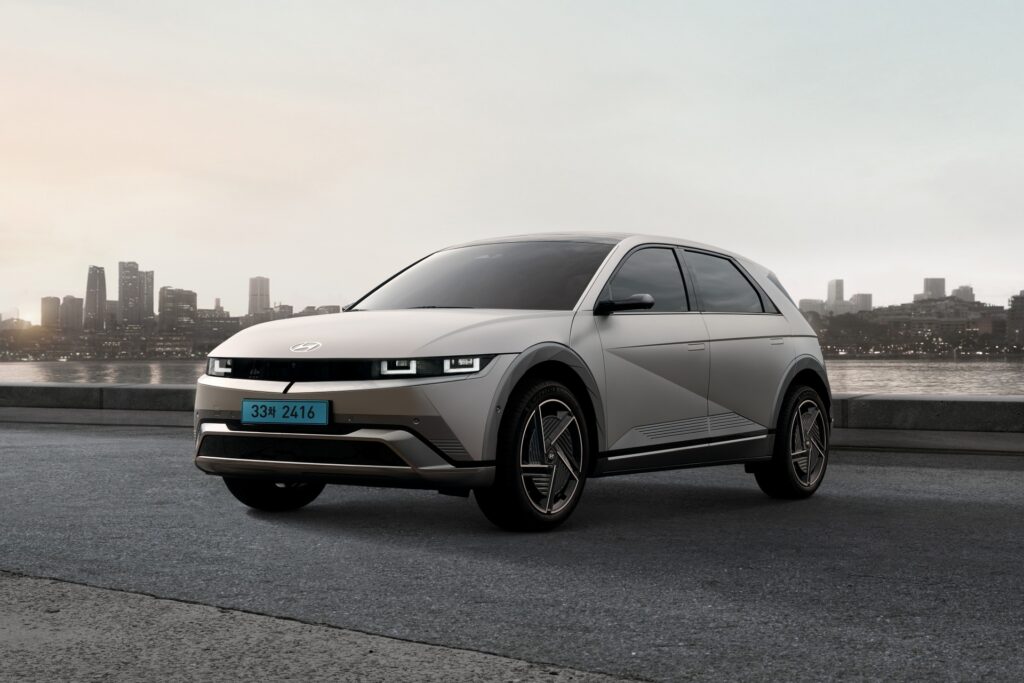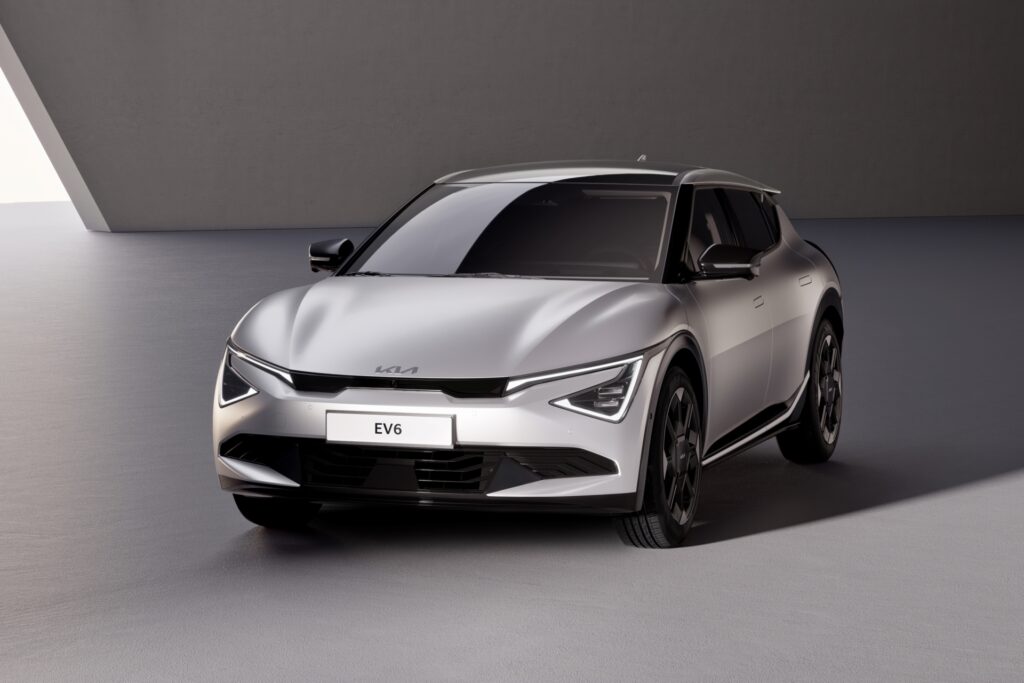
The superiority of EVs built on Hyundai Motor Group's dedicated EV platform, E-GMP, has been proven once again by the taxi industry. The positive experience of E-GMP electric vehicles' high quality and durability has gone viral in the industry, sparking a boom in EV conversions.
According to the Korea Automobile and Mobility Industry Association, 33,400 electric taxis were registered in Korea in the three-year period from 2021 to 2023, when the E-GMP-based dedicated electric vehicles Hyundai Ioniq 5 and Kia EV6 entered the market. The total number of newly registered taxis in the same period was 115,583, with the share of electric taxis amounting to about 301 TP3T. In the three years prior to the launch of the E-GMP (2018-2020), the share of EVs in new taxis was 2.31 TP3T, a nearly 13-fold surge after the launch of dedicated EVs under the E-GMP.
The most registered EV taxis in Korea over the past three years were the IONIQ 5 with 14,804 units, followed by the EV6 (7,353) and IONIQ 6 (3,913), with the three E-GMP-based vehicles accounting for 781 TP3T of the total EV taxis registered in the period. Three out of four taxi drivers considering purchasing an electric vehicle opted for a dedicated E-GMP-based electric vehicle.
In addition, the Kia Niro Plus (4,237 units) and Niro EV (2,571 units) were ranked third and fifth respectively, followed by the Hyundai Kona Electric (446 units) in sixth place, demonstrating that the internal combustion engine-based Hyundai-Kia EVs were also chosen by the taxi industry.
It is significant that taxi drivers, who spend most of their day in their cars, are choosing electric vehicles at a much higher rate. In fact, Hyundai Motor Group's taxi trims are only the Ioniq 5 and Niro Plus, but a growing number of taxi drivers are buying and modifying cars for regular customers, such as the EV6 and Ioniq 6.
A taxi industry representative commented on the E-GMP electric vehicle, saying, "It has excellent range and electricity cost, 400V-800V multi-quick-charging system, driving performance and quietness." "In addition to the common attributes of electric vehicles such as low fuel and maintenance costs, the E-GMP's outstanding productivity has improved the quality of taxi business."

Meanwhile, due to the nature of the taxi business, which involves long daily trips, there are a growing number of taxi drivers in the industry who have logged more than 200,000 km and 300,000 km of cumulative mileage, proving the durability of EVs. Kim Byung-cheol (50), a taxi driver who launched his EV6 in September 2021, has driven about 310,000 kilometres in two years and eight months. After a recent battery diagnostic evaluation, the EV6's State of Health (SOH) was 97.3%, showing that it is still in like-new condition after more than 310,000 kilometres of driving.
"After more than 300,000 kilometres, all the performance, including the range, is still as good as when it was new," said Kim. "The secret is the charging habit, but since it is based on a platform dedicated to electric vehicles, it seems to manage itself well because various functions such as the battery management system (BMS) work organically."
Kim also shared his experience with fast charging and long-distance driving, dismissing the prejudice that electric vehicles are disadvantaged for long-distance driving. "We also use quick charging during long-distance operations, such as travelling from Daegu to Incheon International Airport," he said, "Recently, the number of chargers at highway service areas has increased significantly and the charging output has increased, so there is no burden on long-distance driving."
"E-GMP electric vehicles have the highest level of energy efficiency and economy," said Lim Chae-min (68), a taxi driver who has driven the IONIQ 5 for about 200,000 kilometres since it was delivered in April 2022. "The IONIQ 5's real-world electricity consumption and range are much higher than the officially certified figure (429 km, based on the 2022 Long Range)," he said, "and fuel costs have been reduced to less than a third of what they would have been with a conventional LPG vehicle."
He also praised the low maintenance costs. "In addition to lower fuel costs, electric vehicles have fewer consumables that need to be replaced compared to internal combustion engines, which not only reduces maintenance costs, but also saves time as you rarely need to visit the mechanic," said Lim. "The brake pads are as good as new," he said, adding, "Hyundai-Kia's electric vehicles offer multiple regenerative braking modes and the natural acceleration and deceleration of regenerative braking, so the pads are hardly worn out."
The two taxi drivers interviewed agreed that the E-GMP electric vehicle was the secret to their ability to drive 200,000 to 300,000 kilometres in just over two years. "The absence of engine noise and vibration in an electric vehicle makes the cabin quieter and less tiring to drive, and the E-GMP electric vehicle's superior driving performance reduces the stress of climbing hills and overtaking situations," they said.
"We are proud to provide a positive electric vehicle experience to taxi drivers, whose cars are their office and livelihood," said a Hyundai Motor Group representative. "We expect that the positive experience of taxi drivers, who have been driving electric vehicles for longer than anyone else, will clear up public misconceptions about electric vehicles and accelerate electrification."
In the last three years since Hyundai Motor Group entered the electric vehicle market with the introduction of the E-GMP, it has been recognised for its excellence globally by sweeping 13 out of 30 awards at the world's three major car of the year awards, including the World Car Awards, North American Car of the Year and European Car of the Year.
Hyundai Motor Group's dedicated E-GMP-based electric vehicles include the Ioniq 5, Ioniq 6 and EV6, as well as the Kia EV3, EV9 and Genesis GV60.
Article roadtesting editorial (dhseo1208@gmail.com)
Photo Hyundai Motor Company



![[현장취재] 토레스 하이브리드는 시작일 뿐, 친환경차 브랜드로 거듭날 KG모빌리티](https://roadtestmedia.com/wp-content/uploads/2025/06/20250617_KGM_FORWARD_개최_1-360x180.jpg)




